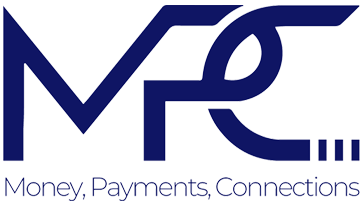Critic’s Corner
By Dale Laszig, DSL Direct
Capitol Hill leaders take aim at P2P fraud
June 2023 letters to Dan Schulman, president and CEO of PayPal, and Brian Grassadonia, the CEO of Cash App, from U.S. Senator Sherrod Brown (D-OH), Chairman of the Senate Banking, Housing, and Urban Affairs Committee, and Senators Jack Reed (D-RI), Bob Menendez (D-NJ), and Elizabeth Warren (D-MA) urged the leading peer-to-peer (P2P) payment platforms to rein in fraud and scams on Venmo, a PayPal brand and the Cash App.
“Americans deserve a payments system that provides them with speed and convenience, but above all, that keeps their money safe. In light of these concerns, we would like to understand the specific steps you are taking to detect and prevent fraudulent transactions, including fraudulently induced transactions, on Venmo,” they wrote, issuing a June 30, 2023 for both companies to provide transaction data and plans for addressing these issues.
P2P’s dark side
A March 31, 2023, blog post by First Mid Bank and Trust, “Fraud Education – Peer-to-Peer (P2P) Payment Fraud & Scams” noted P2P fraud typically occurs when unauthorized persons gain access to an app or account without permission. Scams, on the other hand, are not recoverable or protected because users authorized the transactions, even if they were scams or mistakes, including these common scenarios:
Unauthorized electronic fund transfers: A hacked account, compromised card number, stolen device or result of a phishing attack are all ways that malicious actors gain access to an account.
Seller scams: While they come in many forms, most seller scams result in non-delivered goods and services.
Buyer scams: Also known as overpayment scams, these scams frequently entail a bogus check from the scammer who claims it was an overpayment and asks for a refund of the difference. When the check bounces, the buyer is on the hook for the amount of the bad check as well as never receiving the original purchase.
Money mule scams: These types of scams usually involve money laundering and may involve fake dating accounts, work-from-home schemes, or phony prizes. Scammers send money and ask victims to send it to another person, without disclosing that the funds are stolen.
“It’s important to be careful, because once you send a payment, you may not be able to cancel it,” the authors wrote, urging readers to take their time when initiating a P2P transaction, use security settings, keep personal information private and, above all, to treat P2P payments like cash.
“Money moves quickly when you use P2P apps,” they wrote. “Once you hit send, money doesn’t take long to reach its destination. It’s a good idea to double-check you have the correct info to make sure your money goes where you intended.”
Balance protection, innovation
Noting that Venmo’s consumer protection policies have not kept pace with skyrocketing consumer adoption, Congressional leaders noted that Venmo’s total payment volume increased 9% quarter-over-quarter to $62.7 billion, according to PayPal’s Q1 investor update. However, they claimed the company has not taken sufficient steps to protect consumers from the harm that its services have enabled.
“While Venmo has not made its own data on scams and fraud publicly available, independent reports indicate widespread consumer harm,” the senators wrote in their letter, citing a Consumer Reports survey that found 9 percent of P2P app users have been victims of fraudulently induced transactions—meaning that a consumer was deceived into initiating a payment via a scam—and 12 percent accidentally sent money to the wrong person.
Both the PayPal and Cash App letters cited surveys by Consumer Reports and Pew Research Center. The 2023 Consumer Reports study found 9 percent of frequent P2P app users were deceived into initiating a payment and 12 percent accidentally sent money to the wrong person. The 2022 Pew survey reported Black and Hispanic Americans are twice as likely as white consumers to fall victim to P2P fraud and scams.
A full copy of the PayPal letter can be found at https://www.banking.senate.gov/imo/media/doc/venmo_letter.pdf
The Cash App letter is available at https://www.banking.senate.gov/imo/media/doc/cash_app_letter.pdf
Dale S. Laszig, founder and CEO at DSL Direct LLC, covers emerging technology trends for payments industry clients and trade publications. Laszig, a payments industry veteran and member of the Electronic Transactions Association’s Cybersecurity Committee, previously led sales teams for leading POS manufacturers and served on committees for ETA, U.S. Payments Forum, and the Northeast chapter of PayTech Women. She holds graduate and post-graduate degrees from The State University of New York and Argosy University.






